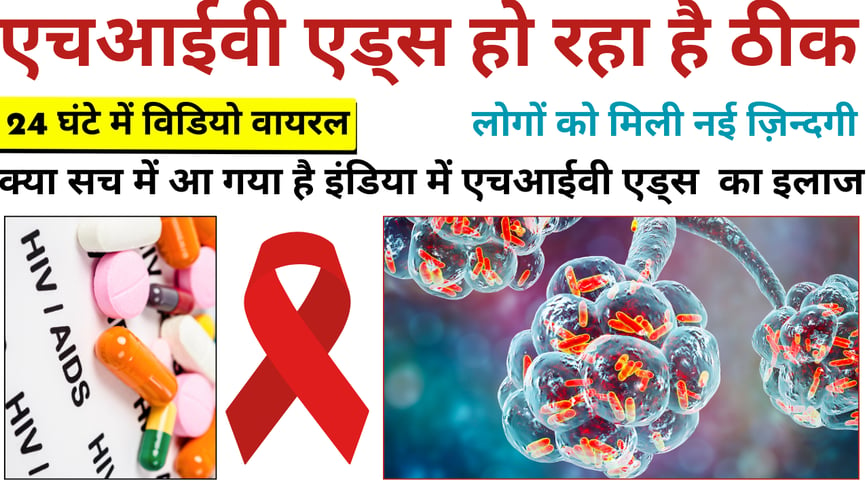The Intersection of HIV/AIDS Awareness and Evidence-Based Treatment
HIV Aids cure ayurvedic medicine for all patients we will cure of your diseases 100% guarantee no art no allopathic medicine
HIV AIDS


HIV/AIDS Awareness and Herbal Treatment
In recent years, there has been a growing awareness and understanding of HIV/AIDS, a condition that has affected millions of people worldwide. While there is still no cure for HIV/AIDS, advancements in medical science have led to the development of effective treatments that can help individuals manage the condition and live longer, healthier lives.
Here are 10 key points regarding HIV/AIDS Ayurvedic treatment:
Holistic Approach: Ayurveda views HIV/AIDS as a disorder of the immune system that requires a balance of body, mind, and spirit. It focuses on enhancing overall well-being rather than just targeting the virus.
Immune-Boosting Herbs: Ayurvedic herbs like Ashwagandha, Guduchi (Tinospora cordifolia), Amla (Indian Gooseberry), and Neem are commonly used to strengthen the immune system, boost vitality, and fight infections.
Rasayana Therapy: This rejuvenation therapy in Ayurveda is intended to strengthen the body and slow disease progression. It includes a combination of herbal treatments, dietary changes, and lifestyle practices to enhance immunity and longevity.
Detoxification (Panchakarma): Ayurvedic treatments often begin with detox therapies like Panchakarma, which aim to cleanse the body of toxins and improve metabolic processes, helping the immune system function more efficiently.
Stress Management: Ayurveda emphasizes the importance of managing mental and emotional health for HIV patients through meditation, yoga, and breathing exercises, as stress can exacerbate symptoms and weaken immunity.
Antioxidant and Anti-inflammatory Benefits: Ayurvedic herbs like Turmeric (Curcumin) have potent anti-inflammatory and antioxidant properties that can help reduce oxidative stress and inflammation, which are common in HIV patients.
The Importance of HIV/AIDS Awareness
Raising awareness about HIV/AIDS is crucial in combating the spread of the virus and reducing the stigma associated with the condition. Education about HIV transmission, prevention methods, and the importance of early testing and diagnosis is essential in empowering individuals to make informed decisions about their sexual health.Furthermore, increasing awareness about HIV/AIDS can help dispel myths and misconceptions surrounding the condition. By providing accurate information, society can work towards creating a more supportive and understanding environment for those living with HIV/AIDS.
The Role of Herbal Treatment in HIV/AIDS Management
In recent years, there has been a growing interest in herbal and alternative treatments for various health conditions, including HIV/AIDS. While conventional antiretroviral therapy (ART) remains the standard treatment for HIV/AIDS, some individuals have turned to herbal remedies as a complementary approach to managing their condition.It is important to note that while some herbs and natural supplements may offer potential health benefits, including immune support and overall well-being, there is currently no scientific evidence to support the use of herbal treatments as a primary or standalone therapy for HIV/AIDS. As such, individuals living with HIV/AIDS should exercise caution and consult with healthcare professionals before incorporating herbal remedies into their treatment regimen.
The Importance of Evidence-Based Treatment
When it comes to managing HIV/AIDS, evidence-based medical interventions, such as ART, have been proven to effectively suppress the virus, reduce the risk of transmission, and improve the quality of life for individuals living with HIV/AIDS. These treatments are backed by extensive research, clinical trials, and regulatory approval processes, ensuring their safety and efficacy.While exploring complementary approaches to HIV/AIDS management, such as herbal treatments, it is crucial for individuals to prioritize evidence-based care and consult with qualified healthcare providers. Open communication with healthcare professionals can help individuals make informed decisions about their treatment options and ensure that they receive comprehensive, well-rounded care for their condition.In conclusion, raising awareness about HIV/AIDS and promoting evidence-based treatment approaches are essential in addressing the complex challenges associated with this condition. By fostering a supportive and informed environment, individuals living with HIV/AIDS can access the resources and care they need to lead fulfilling lives. While the exploration of herbal treatments is a topic of interest, it is important for individuals to prioritize evidence-based care and consult with healthcare professionals to make informed decisions about their treatment options.


